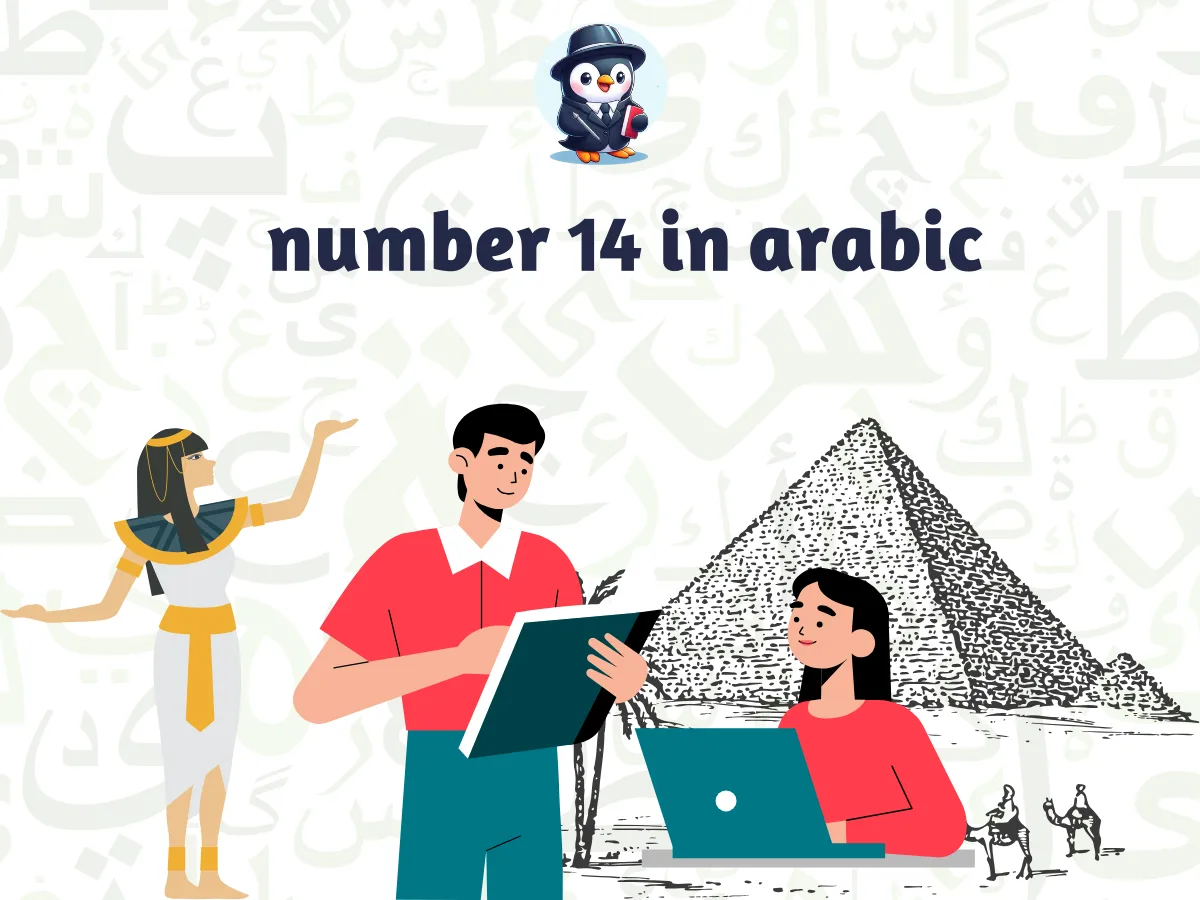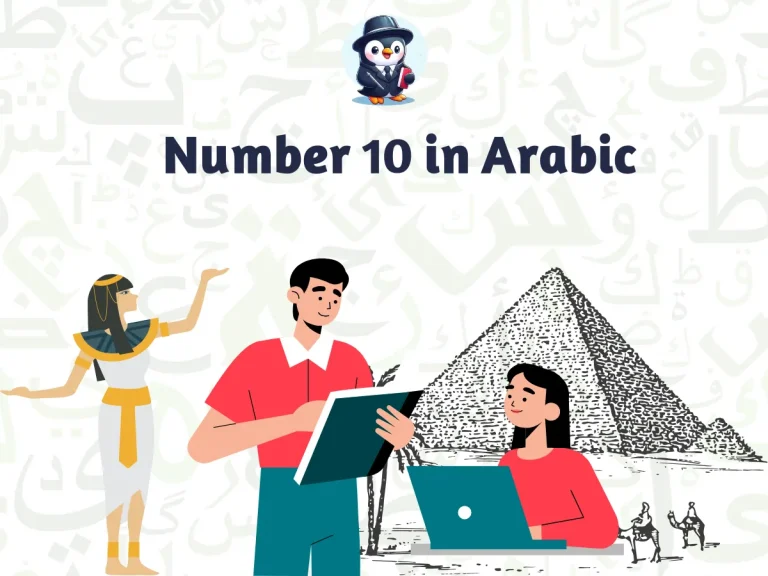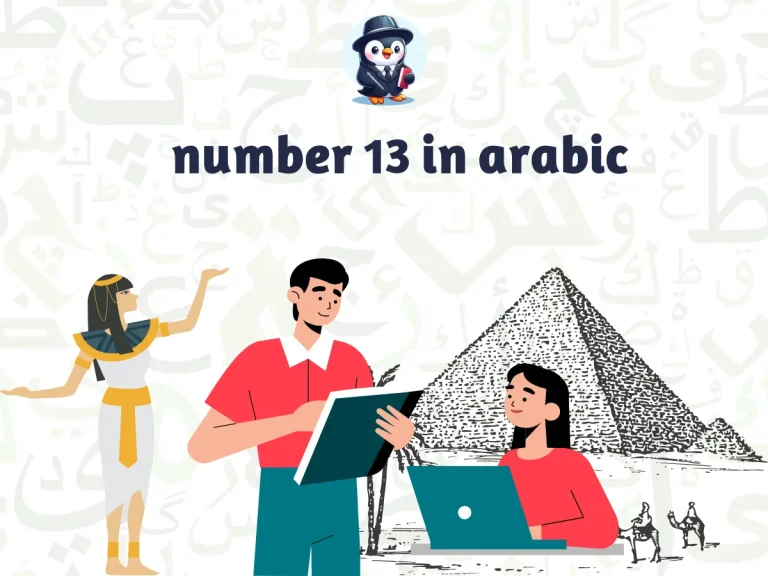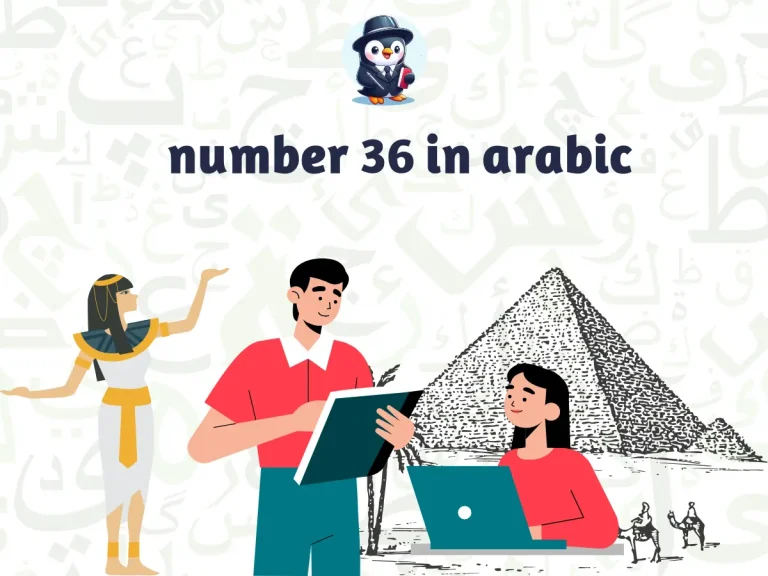number 14 in arabic pronunciation & writing
The number 14 in arabic, “Arba’a ‘Ashar” (أربعة عشر) in Arabic, plays a significant role in communication and bridges the gap between the basic Arabic numbering system and other mathematical concepts.
To learn more about the rest of the numbers from 1 to 100, you can visit this link: Arabic numbers 1 to 100
number 14 in arabic: Importance and Use in Daily Life
Essential for Everyday Interactions
- From navigating public transportation (“al-qitaar ya’atī baʿd arbaʿata ‘ashara daqiqah” (القطار يأتي بعد أربعة عشر دقيقة) – The train comes in fourteen minutes)
- to ordering food (“urid arbaʿata سندويشات فلافل” (أريد أربعة سندويشات فلافل) – I want four falafel sandwiches), using “Arba’a ‘Ashar” is crucial for clear communication.
number 14 in arabic: Understanding Prices and Measurements
Prices in shops or measurements in recipes might involve fourteen. Being comfortable with “Arba’a ‘Ashar” allows you to navigate these situations confidently.
number 14 in arabic: Connecting the Numbering Systems
Unlike numbers eleven to thirteen, which follow the “ten and one” pattern, fourteen (“Arba’a ‘Ashar”) uses the base number “four” (arbaʿa) followed by “‘Ashar” (ten).
This signifies a transition towards using the base number for higher values.
Grasping “Arba’a ‘Ashar” reinforces the concept of place value, a crucial building block for understanding more complex mathematical operations.
number 14 in arabic: Cultural Significance
Dates on historical buildings and documents often use numerals. Knowing “Arba’a ‘Ashar” allows you to decipher these inscriptions, offering a window into the past.
An inscription mentioning “al-fath fi sanat arbaʿatin” (الفتح في سنة أربعين) refers to a conquest in the year 40 (of the Hijri calendar).
number 14 in arabic: Folktales and Traditions
Numbers can hold symbolic meaning in Arabic culture. Fourteen might appear in folktales or traditions, and understanding its usage can enrich your cultural understanding.
In Conclusion
Fourteen, “Arba’a ‘Ashar,” serves as a bridge between the basic Arabic numbering system and more advanced mathematical concepts.
It’s essential for everyday communication and cultural references in the Arabic world.
By mastering “Arba’a ‘Ashar,” you unlock a gateway to deeper communication and a richer understanding of Arabic culture and mathematics.
Why Numbers Matter, and Why Fourteen Stands Out
Numbers are the foundation of communication in any language, and Arabic is no exception.
Learning them unlocks a gateway to rich interactions and cultural understanding.
Here’s why mastering numbers, particularly the unique case of fourteen, is crucial for navigating the Arabic world.
The Power of Numbers in Communication
- Essential for Everyday Interactions From shopping at a market (“urid arbaʿata kilograman min al-banādhir (أريد أربعة كيلوغرام من البنادق)” – I want four kilograms of tomatoes)
- to discussing bus schedules (“al-autobus yaʾati baʿd sitt daqāʾiq” (الأوتوبيس يأتي بعد ست دقائق) – The bus comes in six minutes), numbers are the building blocks of daily communication.
Unlocking Historical Texts: Dates on historical buildings and documents are often written in numerals.
Knowing Arabic numbers allows you to decipher these inscriptions, offering a window into the past.
An inscription mentioning “sanat sittah wa arbaʿīn” (سنة ستة وأربعين) refers to the year 46 in the Hijri calendar.
Understanding the System Arabic employs a distinct system for numbers eleven to nineteen.
Mastering these numbers, like “Arba’a ‘Ashar” (أربعة عشر) for fourteen, is essential for comprehending the logic and structure of the Arabic numbering system.
Fourteen: A Bridge and Distinction
While mastering all numbers is important, understanding fourteen offers a specific advantage:
Bridging the Gap Unlike numbers eleven to thirteen, which follow the “ten and one” pattern, fourteen (“Arba’a ‘Ashar”) uses the base number “four” (arbaʿa) followed by “‘Ashar” (ten).
This signifies a transition towards using the base number for higher values, making fourteen a bridge between the basic system and more advanced numbers.
By appreciating the various uses of numbers and the specific role of fourteen, you gain a deeper understanding of Arabic communication and develop a foundation for learning more complex mathematical concepts.
Learning Arabic numbers empowers you to not only communicate effectively but also appreciate the cultural nuances embedded within them.
Numbers can hold more meaning than their numerical value, offering a window into the rich tapestry of the Arabic world.
number 14 in arabic pronunciation & writing
The number 14 in arabic is Arba’a ‘Ashar (أربعة عشر). Here’s a breakdown for you
Writing
- أربعة (Arba’a): This is written with the letters alif (ا), ra (ر), ba (ب), and ‘ayn (ع).
- عشر (‘Ashar): This part uses the letters
ayn(ع), shiin (ش), and ra (ر).
| Pronunciation | Arabic | English |
|---|---|---|
| arbaʿata ‘ashara | أربعة عشر | fourteen |
| hadhihi al-sajjada suʿruha arbaʿata ‘ashara riyālan | هذه السّجادة سعرها أربعة عشر ريالا | This rug costs fourteen riyals. |
Pronunciation
- Arba’a: Sounds like “ar” (like “are” but without the “e” sound) followed by “ba” (like “ba” in “bat”). The final “a” is a short vowel sound, like the “a” in “about.” The “ʿayn” (ع) has a guttural sound, not present in English.
- ‘Ashar: Refer to explanations for numbers eleven through nineteen. There’s a guttural sound for the
ayn(ع).
| Pronunciation | Arabic | English |
|---|---|---|
| arbaʿata ‘ashara | أربعة عشر | fourteen |
| uḥtāji ilā arbaʿata ‘ashara lītran min al-banzin | أحتاج إلى أربعة عشر لترا من البنزين | I need fourteen liters of gasoline. |
Meaning
- Literally translates to “four and ten” (أربعة وعشرة (arbaʿah wa-ʿashara)).
Examples of how “Arba’a ‘Ashar” is used
يبدأ الفصل الدراسي في الرابع عشر من سبتمبر
yabda’a al-fasl al-diraasi fi al-raabiʿa ‘ashara min september
The semester starts on the fourteenth of September.
لدي أربعة عشر كتابًا جديدًا
lidi arbaʿata ‘ashara kitaban jadidan
I have fourteen new books.
حجزت موعدًا لدى الطبيب في الرابع عشر من الشهر القادم.
ḥajazt mawʿidan lil-ṭabiib fi al-raabiʿa ‘ashara min al-shahri al-qaadim.
I booked an appointment with the doctor on the fourteenth of next month.







